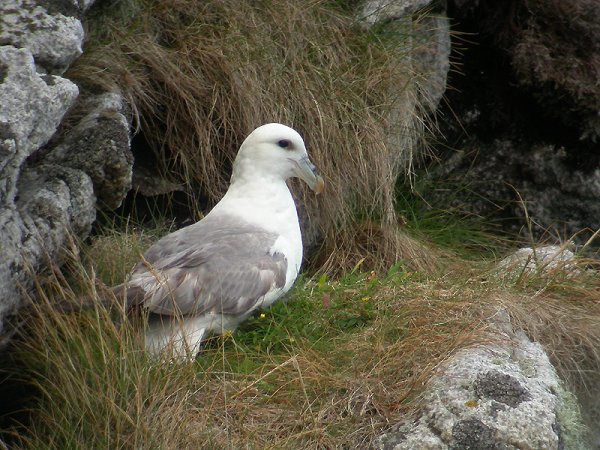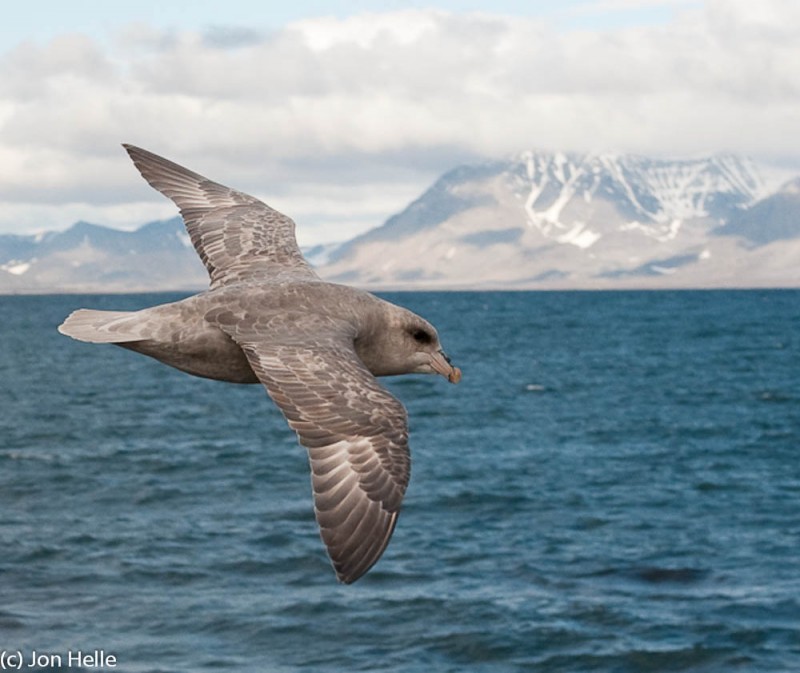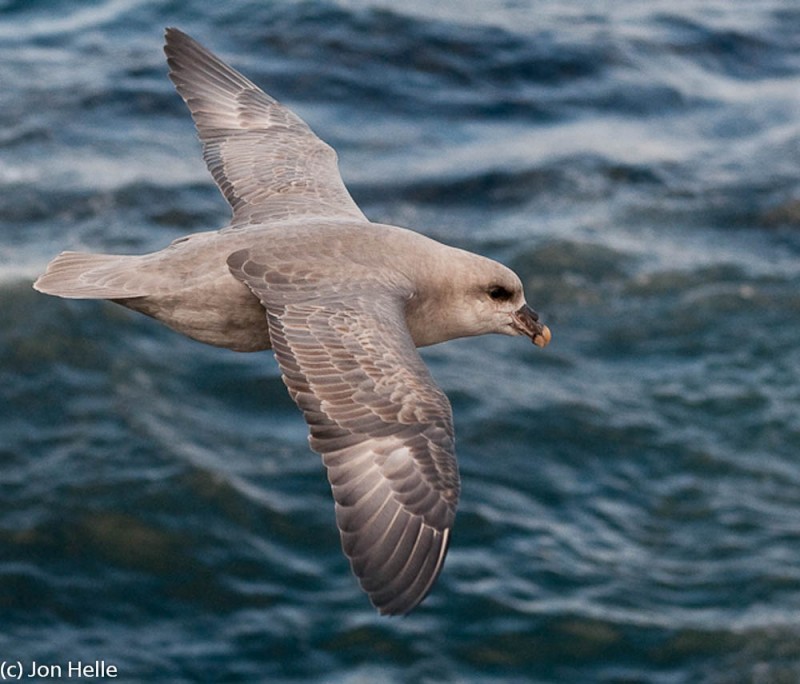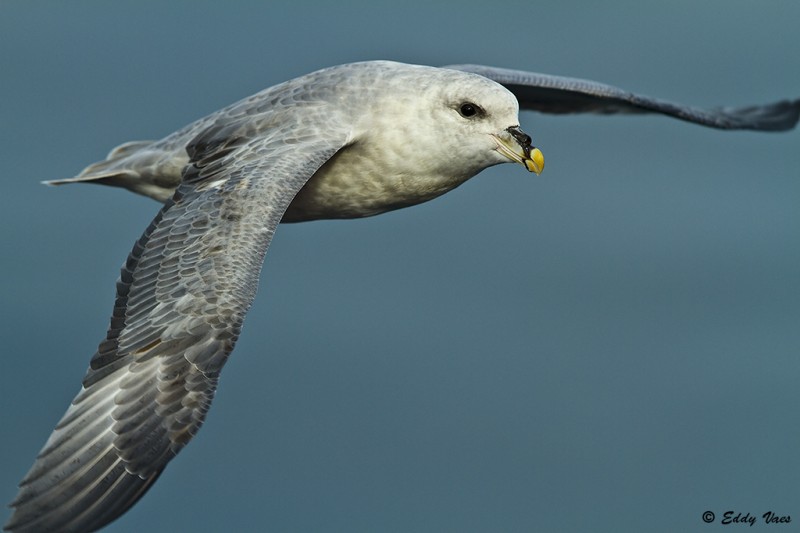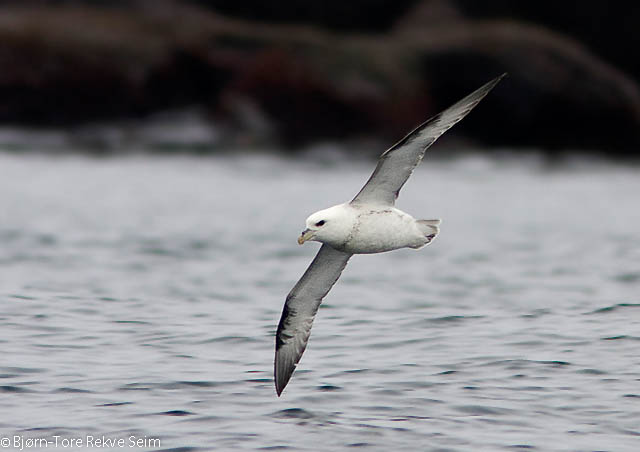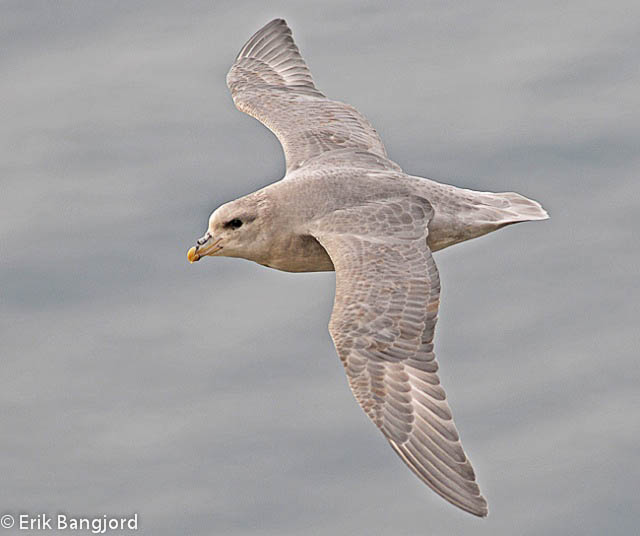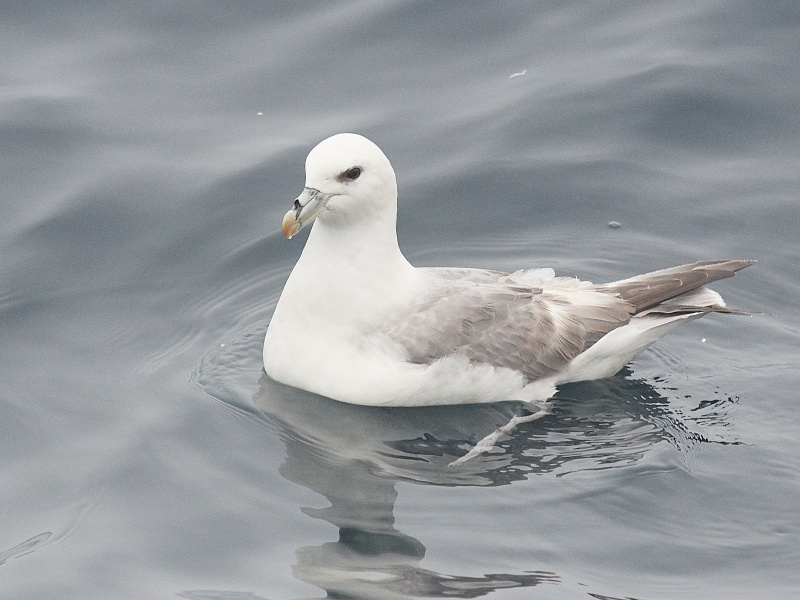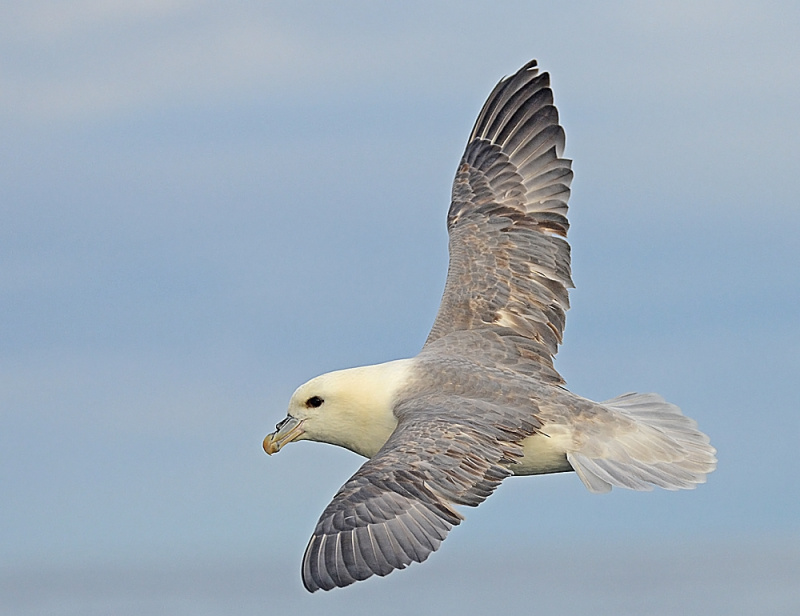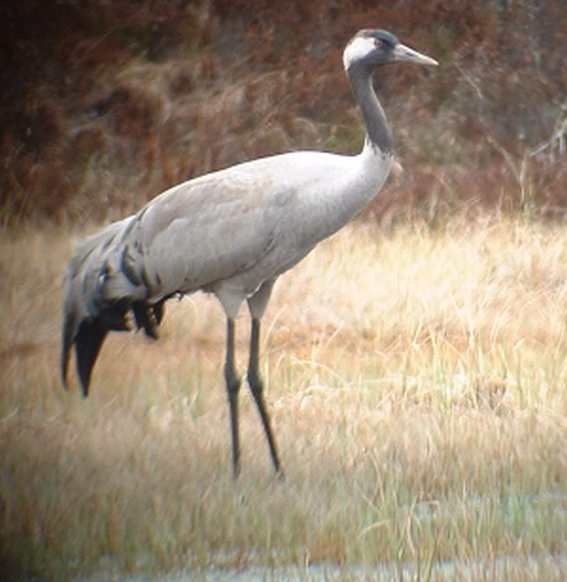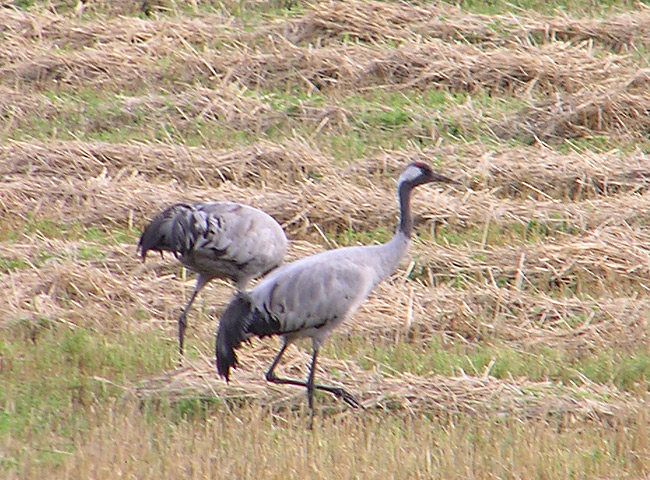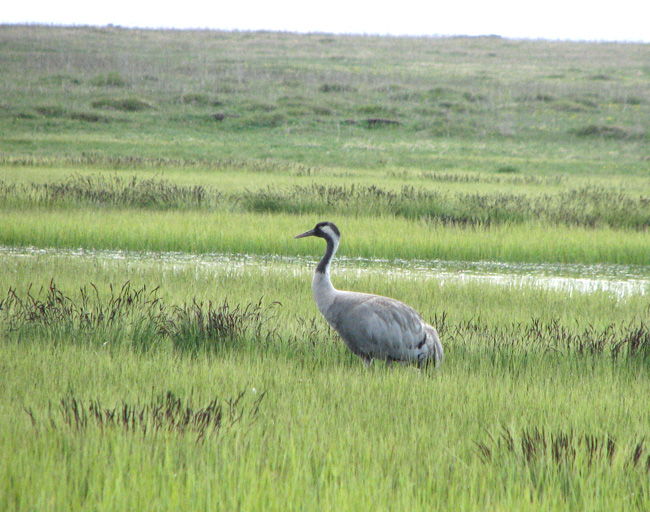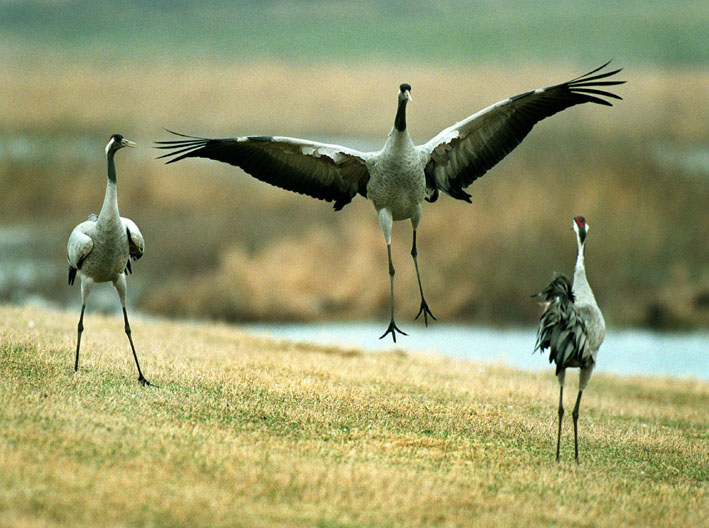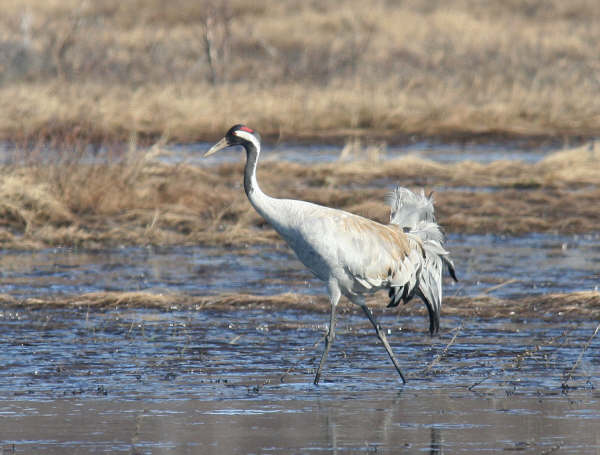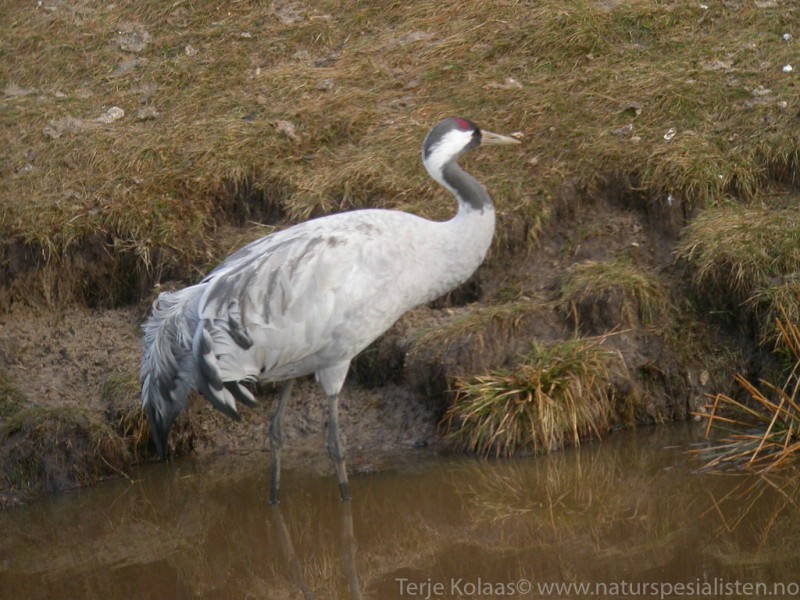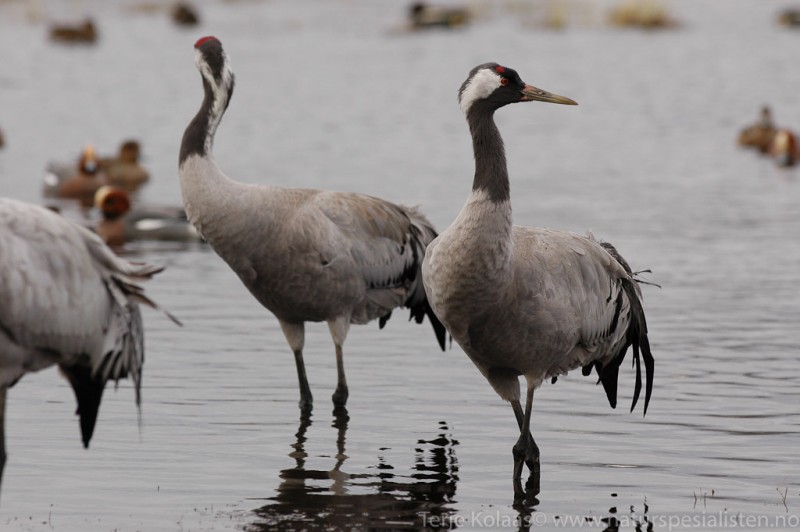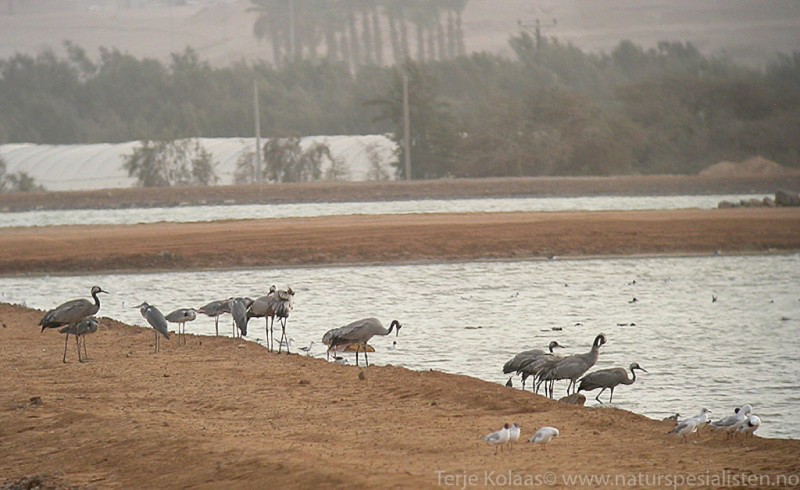Fulmar (Fulmarus glacialis)
Crane (Grus grus)
Occurs in dark and pale morph. Plumage recalling gulls more than shearwaters (especially pale morph). Differs from shearwaters in white or pale head, compact body, short and heavy bill and broad wings. Flight pattern distinguishes it from gulls, and is similar to other tubenoses. Glides on stiff wings with occasional bursts of shallow and stiff wing-beats. Pale base of primaries visible at considerable distance in both dark and pale morph. Dark morph most common in high-arctic areas, pale morph most common in southern breeding range.
Sound:Mostly heard on breeding ground. Coarse, harsh, staccato calls when courting or quarrelling.
Social interaction:
Distribution:
Wikipedia: map (se also Xeno-canto below)
Ecology:Birdlife ecology
Links:
Observation.org Latest observations
Image search Flickr NB! May give other species
CCSounds:Recorded by Stein Ø. Nilsen,http://www.xeno-canto.org ,CC license
A very large, long and slender bird. Bigger than Grey Heron. Plumage grey, with contrasting black throat and flight-feathers. White sides of neck. Tertials forms fluffed, ostrich-like rear end. Red crown visible at close range. Easily told from herons in flight by the straight neck. Juveniles with rufous head, lacking the marked pattern of adults.
Sound:Powerful, resonant and bugling "kriiiiioooo" in various forms. Very far reaching. Often heard in duet where the female immediately answers the male call at a slightly deeper pitch. Also very vocal when flocks meet.
Call, male/female:
Distribution:
Wikipedia: map (se also Xeno-canto below)
Ecology:Birdlife ecology
Links:
Observation.org Latest observations
Image search Flickr NB! May give other species
CC
 English
English Albanian
Albanian
 Armenian
Armenian
 Bulgarian
Bulgarian
 Catalan
Catalan
 Croatian
Croatian
 Czech
Czech
 Danish
Danish
 Dutch
Dutch
 Finnish
Finnish
 French
French
 Georgian
Georgian
 German
German
 Greek
Greek
 Hungarian
Hungarian
 Italian
Italian
 Latvian
Latvian
 Lithuanian
Lithuanian
 Macedonian
Macedonian
 Norwegian
Norwegian
 Polish
Polish
 Portuguese
Portuguese
 Romanian
Romanian
 Russian
Russian
 Sami : Lule sami
Sami : Lule sami
 Sami : North sami
Sami : North sami
 Sami : South sami
Sami : South sami
 Scientific names
Scientific names
 Serbian
Serbian
 Spanish
Spanish
 Swedish
Swedish
 Ukrainian
Ukrainian


